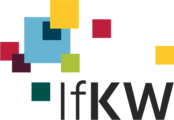
Project Partners
Cooperation
The research project is being conducted in collaboration with Dr. Arne Freya Zillich (Friedrich Schiller University Jena) and Dr. Lars Günther (University of Hamburg), who are working on the scientific topic of autonomous driving.
Description
Internet users today are confronted with an enormous amount of different, sometimes contradictory or even manipulative claims. This is particularly evident in highly controversial topics, such as the debates around anthropogenic climate change or, currently, the so-called 'infodemic' around the Covid-19 crisis. Online, we move increasingly towards 'dissonant public spheres' (Pfetsch, 2018). Diversity of opinion, which is fundamentally a prerequisite and enrichment for the democratic public sphere, is assumed to be endangered by destructive forces such as disinformation campaigns, hate speech, and populism. The question of how online users deal with this new digital dissonance is therefore one of the most pressing concerns of current online use and impact research. The research project will therefore investigate how online users react to disinformation, in this specific case so-called 'fake news', on the topic of climate change and to what extent this influences their online usage behavior as well as their attitudes.
The theoretical background is provided by the theory of cognitive dissonance (Festiger, 1957) and various research approaches to online information behavior (e.g., selective exposure research).
The core of the comprehensive methodological design is, in addition to a multi-level survey and reconstructive interviews, the survey of online information behavior via eye-tracking, in which the subjects' gaze and navigation patterns are recorded during internet research.
The practical implementation of the research was carried out within the framework of research-based teaching. In the seminar "New Media in Society", the conception and survey was conducted in the summer semester 2018 in cooperation with students of the M.A. program "Media Technology and Communication".
Duration
2018 - 2020
Links
Public Screencast of the IfKW: „’Fake News in der Corona-Krise’? Was können wir aus der Forschung über Desinformationen zum Klimawandel lernen können“
Publications
Taddicken, M., & Wolff, L. (2020). ‘Fake News’ in Science Communication: Emotions and Strategies of Coping with Dissonance Online. Media and Communication, 8(1), 206-217. https://doi.org/10.17645/mac.v8i1.2495
Presentations
Taddicken, M., & Wolff, L. (2019, May 9-11). Desintegration durch Desinformation? Eine Untersuchung von Online-Dissonanzbewältigung bei der Konfrontation mit 'alternative facts' zum Klimawandel [Presentation]. Annual Conference of the German Communication Association (DGPuK), Westfälische Wilhelms-Universität Münster, Germany.
Taddicken, M., & Wolff, L. (2019, February 6-8). 'Fake News' in der Wissenschaftskommunikation - Zum Dissonanzempfinden von Online-Nutzer*innen zu klimawandelskeptischen Inhalten [Presentation]. Annual Meeting of the Science Communication Division of the German Communication Association (DGPuK), Technische Universität Braunschweig, Germany.